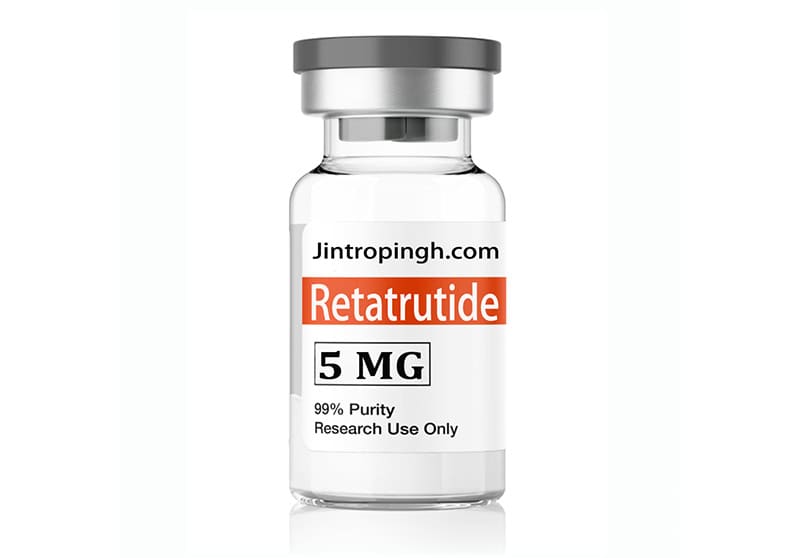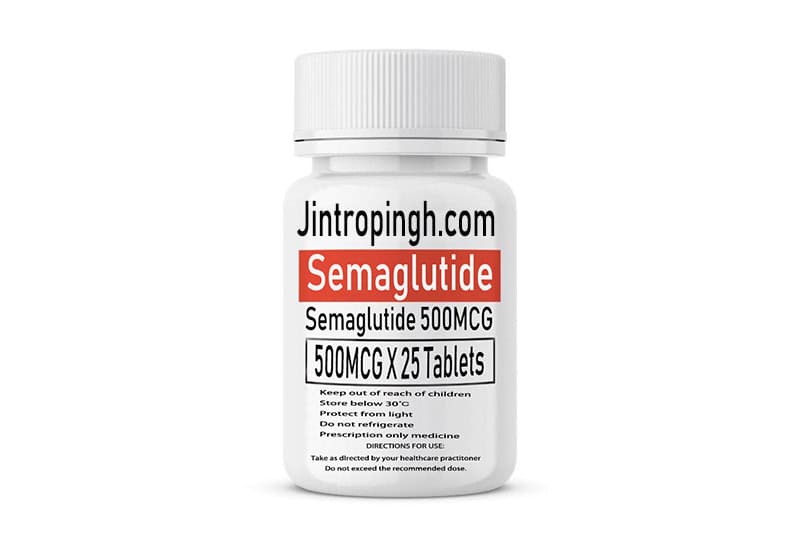Retatrutide LY-3437943 For Weight Loss 5mg 10vials
Original price was: $200.00.$135.00Current price is: $135.00.
Retatrutide (LY3437943) is an agonist of the glucose-dependent insulinotropic polypeptide, glucagon-like peptide 1, and glucagon receptors.
The data from the trials mentioned that Retatrutide is effective in reducing weight in individuals with nonsyndromic obesity.
5mg *10 vials *1 kits
100% delivery
- Satisfaction Guaranteed
- No Hassle Refunds
- Secure Payments
Description
Retatrutide (LY3437943) is an agonist of the glucose-dependent insulinotropic polypeptide, glucagon-like peptide 1, and glucagon receptors. It is a single peptide conjugated to a lipid diacid molecule, exerts a powerful agonist effect on the human glucagon?receptor (GCGR), GIPR, and GLP?1R.
In comparison with the human glucagon and glucagon?like peptide 1 (GLP?1), retatrutide exhibits reduced potency (by a factor of 0.3 and 0.4, respectively) on the GCGR and GLP?1R, while displaying enhanced potency at the human GIPR (by a factor of 8.9) when compared to the glucose?dependent insulinotropic polypeptide (GIP).In vitro, Retatrutide demonstrates similar efficacy to natural glucagon in evoking glucose production within hepatocytes. While in adipocytes, it surpasses native GIP in inducing lipolysis.
Retatrutide (LY3437943) For Weight Loss
Overweight and obesity have become global health challenges with increasing prevalence. Several drugs have received Food and Drug Administration approval for nonsyndromic obesity treatment,The regimens recognized by the United States Food and Drug Administration (FDA) for prolonged use for nonsyndromic obesity are orlistat, phentermine?topiramate, naltrexone?bupropion, liraglutide, and semaglutide.
Two FDA?accepted medications; setmelanotide, and metreleptin, target individuals diagnosed with monogenic syndromic obesity. Most of them have adverse effects of a gastrointestinal nature such as abdominal pain, nausea, vomiting, diarrhea, or constipation and do not achieve more than 15% weight decrease except with glucagon?like peptide 1 receptor (GLP?1R) agonists like semaglutide.
While these medications are generally considered safe, but most have limitations including gastrointestinal side effects and limited weight loss efficacy. some medications carry specific warnings, such as contraindications in individuals with heart and kidney disease, uncontrolled hypertension, glaucoma, hyperthyroidism, or medullary thyroid carcinoma.
Retatrutide is an incretin mimetic agent. Incretins decrease appetite and enhance feelings of fullness while slowing gastric emptying (GE). The fewer side effects and high accuracy of incretin mimetic drugs such as liraglutide and semaglutide are opening the door for the development of such drugs. The data from the trials mentioned that Retatrutide is effective in reducing weight in individuals with nonsyndromic obesity.
Through Conducted a phase 2, double-blind, randomized, placebo-controlled trial involving adults who had a body-mass index (BMI, the weight in kilograms divided by the square of the height in meters) of 30 or higher or who had a BMI of 27 to less than 30 plus at least one weight-related condition. Participants were randomly assigned in a 2:1:1:1:1:2:2 ratio to receive subcutaneous retatrutide (1 mg, 4 mg [initial dose, 2 mg], 4 mg [initial dose, 4 mg], 8 mg [initial dose, 2 mg], 8 mg [initial dose, 4 mg], or 12 mg [initial dose, 2 mg]) or placebo once weekly for 48 weeks. The primary end point was the percentage change in body weight from baseline to 24 weeks. Secondary end points included the percentage change in body weight from baseline to 48 weeks and a weight reduction of 5% or more, 10% or more, or 15% or more. Safety was also assessed.
The data from the trials mentioned that The least-squares mean percentage change in body weight at 24 weeks in the retatrutide groups was ?7.2% in the 1-mg group, ?12.9% in the combined 4-mg group, ?17.3% in the combined 8-mg group, and ?17.5% in the 12-mg group, as compared with ?1.6% in the placebo group. At 48 weeks, the least-squares mean percentage change in the retatrutide groups was ?8.7% in the 1-mg group, ?17.1% in the combined 4-mg group, ?22.8% in the combined 8-mg group, and ?24.2% in the 12-mg group, as compared with ?2.1% in the placebo group. At 48 weeks, a weight reduction of 5% or more, 10% or more, and 15% or more had occurred in 92%, 75%, and 60%, respectively, of the participants who received 4 mg of retatrutide; 100%, 91%, and 75% of those who received 8 mg; 100%, 93%, and 83% of those who received 12 mg; and 27%, 9%, and 2% of those who received placebo. The most common adverse events in the retatrutide groups were gastrointestinal; these events were dose-related, were mostly mild to moderate in severity, and were partially mitigated with a lower starting dose (2 mg vs. 4 mg). Dose-dependent increases in heart rate peaked at 24 weeks and declined thereafter.
Conclusions
It is expected that the use of retatrutide, a triple agonist, will result in significant weight loss among individuals who are obese or overweight. This medication has the potential to revolutionize pharmacotherapy for obesity and overweight in the coming years. Nonetheless, additional research and clinical trials are imperative to comprehensively grasp the treatment’s long?term impacts, safety, and effectiveness.



